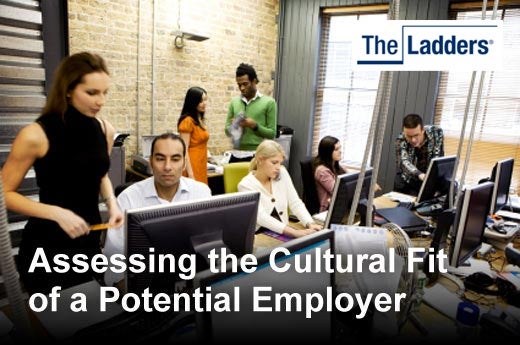The job description seems like it was written for you. The pay is right, the commute easy on your nerves, you even like your new boss, and the coffee machine is near your desk. But is the new job a good cultural fit? How can you even tell?
Assessing the cultural fit of a company goes well beyond whether you are about the same age as your co-workers or share interests with your managers. It includes the way the company runs day to day as well as grander elements such as the ethical guidance of the leadership or whether your role fits into the strategic vision.
If you are eager to make a move, you might be willfully ignoring signs that these elements of the job will make it hard for you to succeed — or at the very least hard to enjoy it, warned Stephanie Daniel, vice president and group program manager at Keystone Associates in Boston, where she advises professionals in career transition.
“Cultural fit is one of the most important factors you can consider when looking for a new position,” she said. “Culture really defines the personality of the organization. It’s not just about whether employees are nice to one another. It’s about examining the company’s values and whether the values of the company match your own personal values as a potential employee.”
Daniel counsels clients to think long term when they are considering a job offer. “If you are taking a job solely because it will pay the bills, even though you know it’s not a good fit, it might be OK for the first few months, but it will take its toll,” she said. “I can’t tell someone to take or not take a job, but I do tell them it’s important to consider how a job will affect your life.”
How do you know if your potential new employer is a good fit? Do your research. Review materials publicly available online and in the media; use your network to find out as much as possible about the company; and when you visit the office for an interview, observe everything from the layout of the office to the age of the equipment. Something as simple as whether people have photos of their families on their desks could tell you whether you would fit in, Daniel said.
TheLadders suggests that when you sit down for an interview, you ask the following key questions to understand how you fit into the fabric of the existing company and whether a position in this company will allow you to achieve the goals you have set for yourself.
Click through for five questions from TheLadders you should ask a potential employer.
“That question gets to what the company is truly interested in accomplishing,” Daniel said. “Do they want to launch a product, expand, create a global presence, or are they looking to sell the company? You can really get at their priorities by asking this question.”
"What are the organization's current challenges?" will help a potential employee determine where the leadership team is focusing its energies, whether it's on new business, cost savings, or new products and services.
“It’s important to ask about the leadership team,” Daniel said. “People are often afraid to ask; they think it is overstepping. But it’s important to broach this topic and to find out what tone is set by leadership.
Ask, “What leadership behaviors are rewarded?” It will give you some clues about what traits are valued. Ask for examples of how key decisions are made. Whether input is gathered from employees or not, for example, will reveal something about how much employees are valued.
“It’s not just about, ‘Will I like working here’ or, ‘Will I like the people?’ ” Daniel explained. “It’s about, ‘What unique attributes do I bring to this company to make an impact?’”
If the company doesn’t value the functions you provide, it may be difficult for you to find success in the company.
“Are they made unilaterally, or are mechanisms built in for people to have a say? What works best for you?”
The answer will touch on company loyalty and whether this employer nurtures its employees or churns them up and spits them out.
How do you evaluate all of this? “Use your natural intuitive ability to get a sense of the mood and attitude of the place,” Daniel said. Ultimately, there are no right and wrong answers to any of these questions. The idea is to decide whether the environment will work for you. “It’s a combination of gut plus research, and you can’t dismiss either.”








